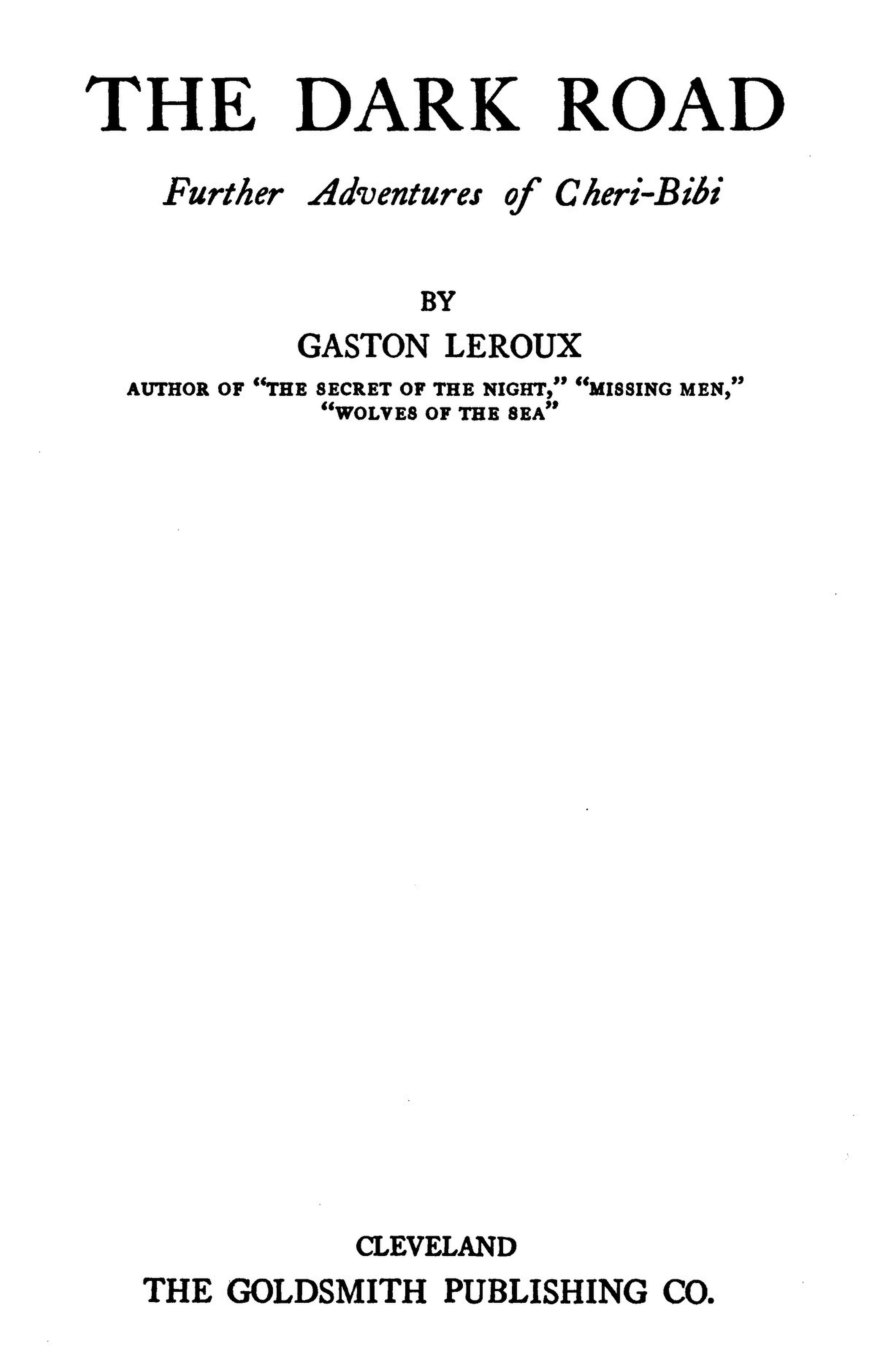
THE DARK ROAD
Further Adventures of Chéri-Bibi
BY
GASTON LEROUX
AUTHOR OF "THE SECRET OF THE NIGHT," "MISSING MEN,"
"WOLVES OF THE SEA"
CLEVELAND
THE GOLDSMITH PUBLISHING CO.
CONTENTS
CHAPTER I
CHAPTER II
CHAPTER III
CHAPTER IV
CHAPTER V
CHAPTER VI
CHAPTER VII
CHAPTER VIII
CHAPTER IX
CHAPTER X
CHAPTER XI
CHAPTER XII
CHAPTER XIII
CHAPTER XIV
CHAPTER XV
CHAPTER XVI
CHAPTER XVII
CHAPTER XVIII
CHAPTER XIX
CHAPTER XX
CHAPTER XXI
CHAPTER XXII
CHAPTER XXIII
CHAPTER XXIV
CHAPTER I
THE NUT
The Nut lay on the scorching beach facing the terrible sea in which thehungry sharks, the warders of his prison, were disporting. The convictwas like a weary animal at rest. In truth, he had availed himself of the"relaxation" at ten o'clock to seek out a little fresh air and seclusionbetween two precipitous crags which cut him off from the rest of theconvict settlement. If only he could live alone! No longer to hearanything. No longer to see anything! No longer to think of anything. Buthow could he help thinking of what he had seen, of what he had beencompelled to see, that morning?
A double execution had taken place that very morning as an awful butnecessary example. It was a smart piece of work by Pernambouc, theprison executioner, and his assistant, "Monsieur Désiré." . . . Oh thehorror of it!
The Nut was still shuddering from the sight of it. He was a young man inthe fullness of his supple strength. He lay resting on his elbows,holding his chin in the cup of his hands, apparently indulging in animpossible dream. His broad-brimmed straw hat cast its shadow over thegloom of his penetrating gaze which stole to the distant skyline. Theoutline of his clean-shaven face as far as could be seen indicatedstrength of character and shrewdness. Notwithstanding the ineffaceablemarks of prison life which soon transforms the youngest convict into anold man, the Nut seemed to be scarcely more than forty years of age.
It was this combination of strength and refinement which had broughtdown on him the nickname of The Nut. It is a word which in the languageof the Pré, or convict settlement, denotes a man whom nature hasendowed with a fine bearing usually appreciated by women. "He acted asif he were the master." But the Nut